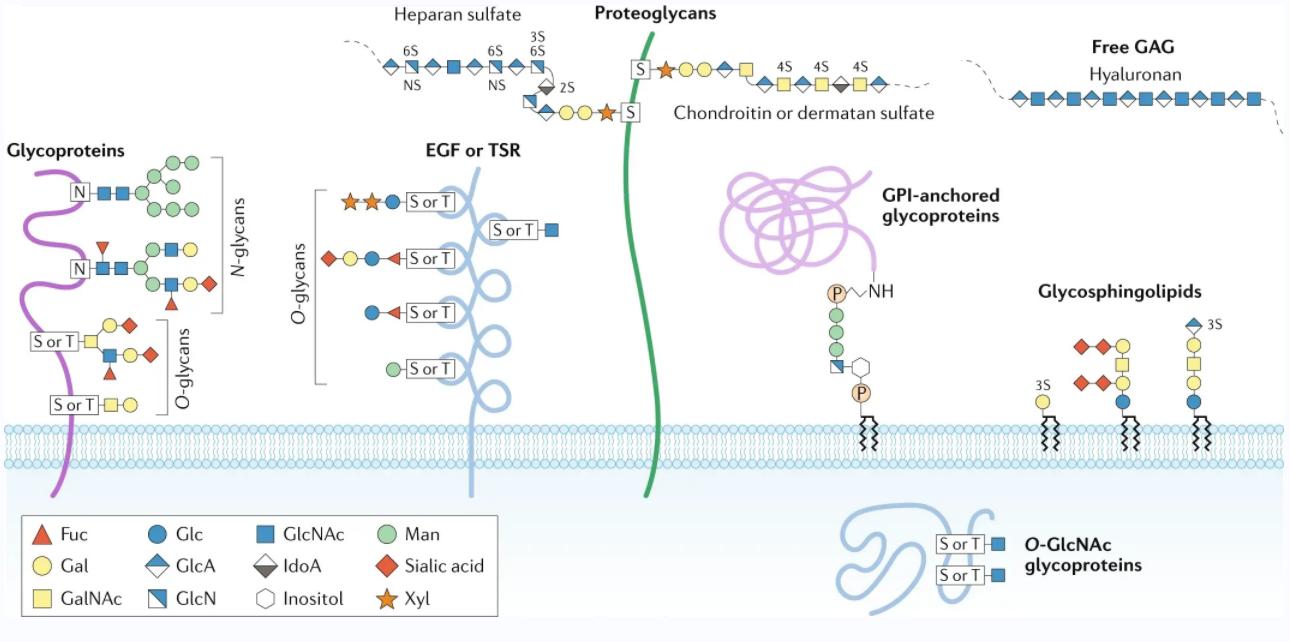Glycosylation Protein Analysis Service
- Home
- Applications
- Proteomics Analysis Services
- Protein Post-Translational Modification Analysis Services
- Glycosylation Protein Analysis Service
Service Details
Glycosylation is a common and important post-translational modification that plays an important role in various biological processes, including intracellular and intercellular signaling, inflammation, tumor immunology, protein folding, and protein stabilization. Protein glycosylation, that is, the attachment of sugar moieties to proteins, mainly includes N-linked glycosylation (N-glycosylation) and O-linked glycosylation (O-glycosylation). It is estimated that at least 50% of human proteins are glycosylated. However, only about 10% of proteins in existing databases are annotated as glycoproteins, and abnormal protein glycosylation and glycan alterations are associated with many diseases. Therefore, comprehensive analysis of protein glycosylation with high sensitivity is helpful for early detection of diseases or evaluation of disease treatment effects.
 Fig. 1. Major types of glycosylation in
humans. (Reily C, et al., 2019)
Fig. 1. Major types of glycosylation in
humans. (Reily C, et al., 2019)
Creative Proteomics has launched an advanced protein glycosylation analysis platform with a powerful mass spectrometry platform, and combined with nano LC-MS/MS, on the basis of rich experience in mass spectrometry sequencing.
At Creative Proteomics, our experienced scientists utilize the HCD/ETD "double fragmentation mode" of Orbitrap Fusion mass spectrometry to resolve the complete glycopeptides of complex glycoproteins, and combines the bioinformatics Byonic analysis software to analyze the mass spectrometry original data analysis, realized the identification of N-glycosylation sites and O-glycosylation sites, and analyzed the sugar chain composition carried by the corresponding sites. In addition, the quantitative analysis of glycoproteins was achieved by nano LC-MS/MS.
According the nature of your glycosylated protein, our high-quality scientists will select a specific method, including trypsin digestion or chemical means, to release glycans from glycoproteins and to enrich glycopeptides due to the high structural complexity of glycosylation, which avoids the disadvantage that mixtures of peptides and glycopeptides complicate the analysis.
With cutting-edge equipment and expertise in protein sequencing and mass spectrometry, we provide one-stop glycosylation protein analysis service. You only need to tell us the purpose of your experiment and send your samples to us, we will take care of all the follow-up matters of the project.
Our simple analysis process includes:
Thanks to our powerful mass spectrometry sequencing platform, Creative Proteomics provides a one-stop shop glycosylation protein analysis service for customers worldwhile. Our experienced scientists work with you to develop tailor-made analytical solutions. Please feel free to contact us with any questions regarding glycosylation protein analysis.
References
For research use only, not intended for any clinical use.